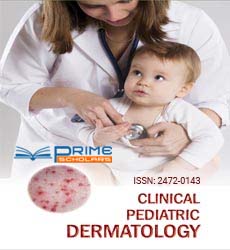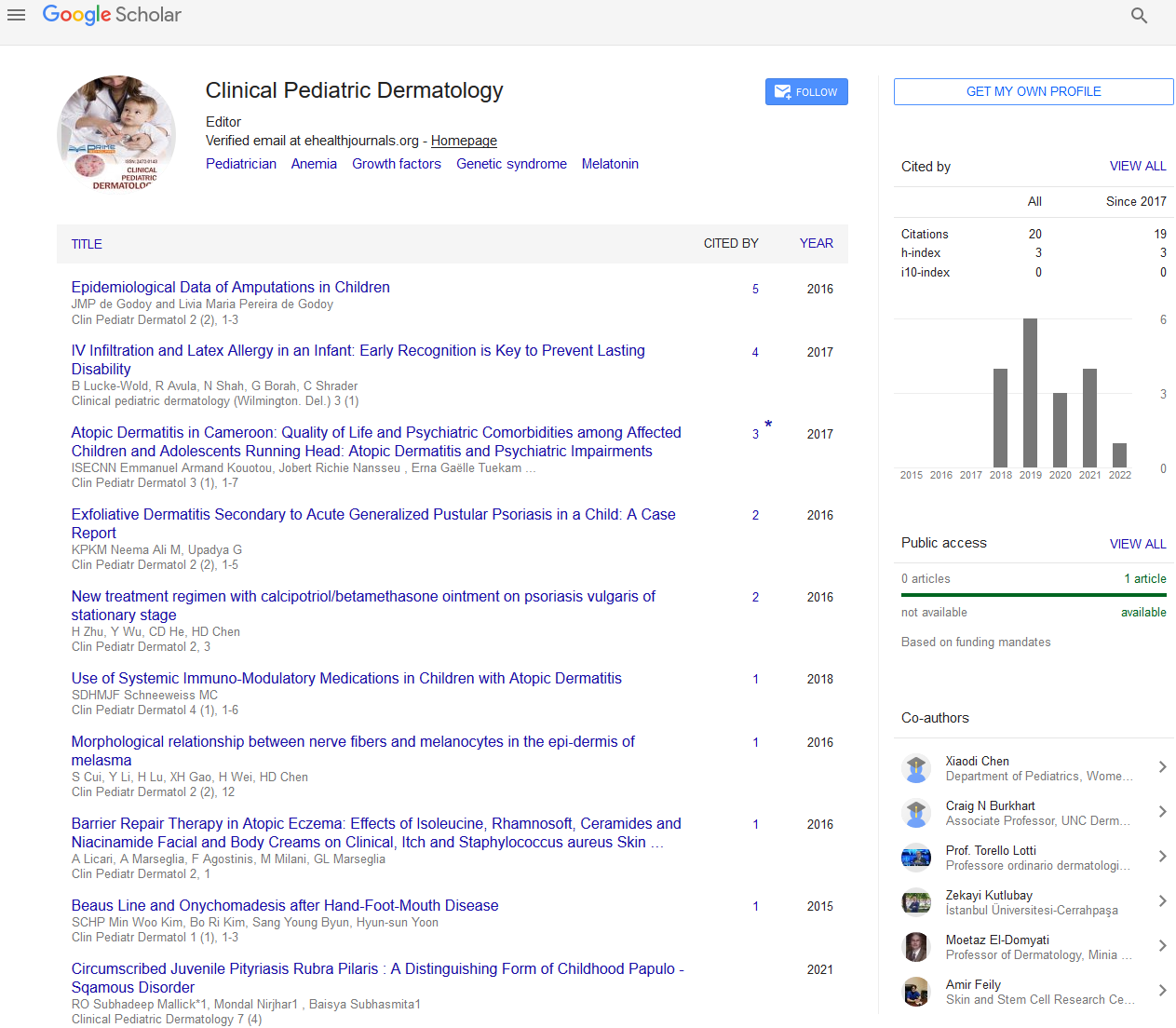Perspective - (2023) Volume 9, Issue 1
Dermatitis: Natural History, Treatment, and Management
Sevda Senel*
Department of Pharmaceutical Technology, University of Hacettepe, Turkey
*Correspondence:
Sevda Senel,
Department of Pharmaceutical Technology, University of Hacettepe,
Turkey,
Email:
Received: 31-Jan-2023, Manuscript No. ipcpdr-23-15844;
Editor assigned: 02-Feb-2023, Pre QC No. ipcpdr-23-15844 (PQ);
Reviewed: 16-Feb-2023, QC No. ipcpdr-23-15844;
Revised: 21-Feb-2023, Manuscript No. ipcpdr-23-15844 (R);
Published:
28-Feb-2023, DOI: 10.36648/2472-0143.9.1.04
Introduction
Dermatitis is an inflammation of the skin that is usually characterized by itching, redness, and a rash. In the short term, small blisters may form, and in the long term, the skin may thicken. Affected areas of the skin can range from small to full-body coverage. Dermatitis is often called eczema, and the differences between these terms are not standardized. In many cases, the exact cause of the disease is unknown. Cases may include a combination of allergies and poor venous return. The type of dermatitis is generally determined by the person’s medical history and the location of the rash. For example, irritant dermatitis commonly occurs on the hands of people who frequently wet their hands. Allergic contact dermatitis occurs upon contact with allergens and causes skin hypersensitivity reactions. Prevention of atopic dermatitis is typical of essential fatty acids and can be treated with moisturizers and steroid creams.
Description
Steroid creams are generally of moderate to high strength and should be used for less than 2 weeks at a time as side effects can occur. Can be contact dermatitis is usually treated by avoiding allergens and irritants. Antihistamines can help you fall asleep and reduce scratching at night. To diagnose dermatitis, your doctor will likely talk to you about your symptoms and examine your skin. Biopsy may be necessary. Do your best to find out what is causing dermatitis. It’s important to remember that people can be affected differently. Do the chemicals you cleanse cause dermatitis? Does your uncle smoke so you get it every time you visit him? Does your scalp get itchy since you started using your new shampoo? Did you get a rash on the inside of your wrist after trying this new perfume? Does too much sun help or worsen your dermatitis? Does it itch every time you wear that wool sweater? Remember stuff: Such as stress, hot showers, allergens like pollen, and pet dander. Find out what makes your dermatitis worse and do your best to avoid it. The first step is to avoid anything that triggers dermatitis. It can be stress, chemicals, cigarette smoke, and other irritants that cause or exacerbate dermatitis. Step 2 is to try the solutions yourself. Step 3 is the medicine prescribed by your doctor. Treatment of dermatitis depends on the cause and symptoms. In addition to the lifestyle and home remedy recommendations below, treatment for dermatitis may include one or more of the following: A corticosteroid cream, gel, or ointment is applied to the affected skin, and certain creams or ointments that affect the immune system called “calcineurin inhibitors” are applied to the affected skin.
Conclusion
Exposure of the affected area to controlled amounts of natural or artificial light (phototherapy). Use of oral corticosteroids (tablets) or injectable dupilumab for severe disease. Use of wet dressings to treat severe atopic dermatitis it becomes a wet dressing. You can reduce the risk by exclusively breastfeeding your baby for at least the first few months. There is not enough evidence that a pregnant or nursing mother’s diet affects risk, nor is there any evidence that delaying the introduction of certain foods is helpful. Although there is preliminary evidence that probiotics may reduce incidence in infancy, it is not sufficient to recommend their use. There is moderate-certainty evidence that the use of is not effective in preventing eczema. In fact, it can increase the risk of skin infections and side effects such as allergic reactions and tingling sensations to certain moisturizers.
Citation: Senel S (2023) Dermatitis: Natural History, Treatment, and Management. Clin Pediatr Dermatol. 9:04.
Copyright: © 2023 Senel S. This is an open-access article distributed under the terms of the Creative Commons Attribution License, which permits unrestricted use, distribution, and reproduction in any medium, provided the original author and source are credited.

